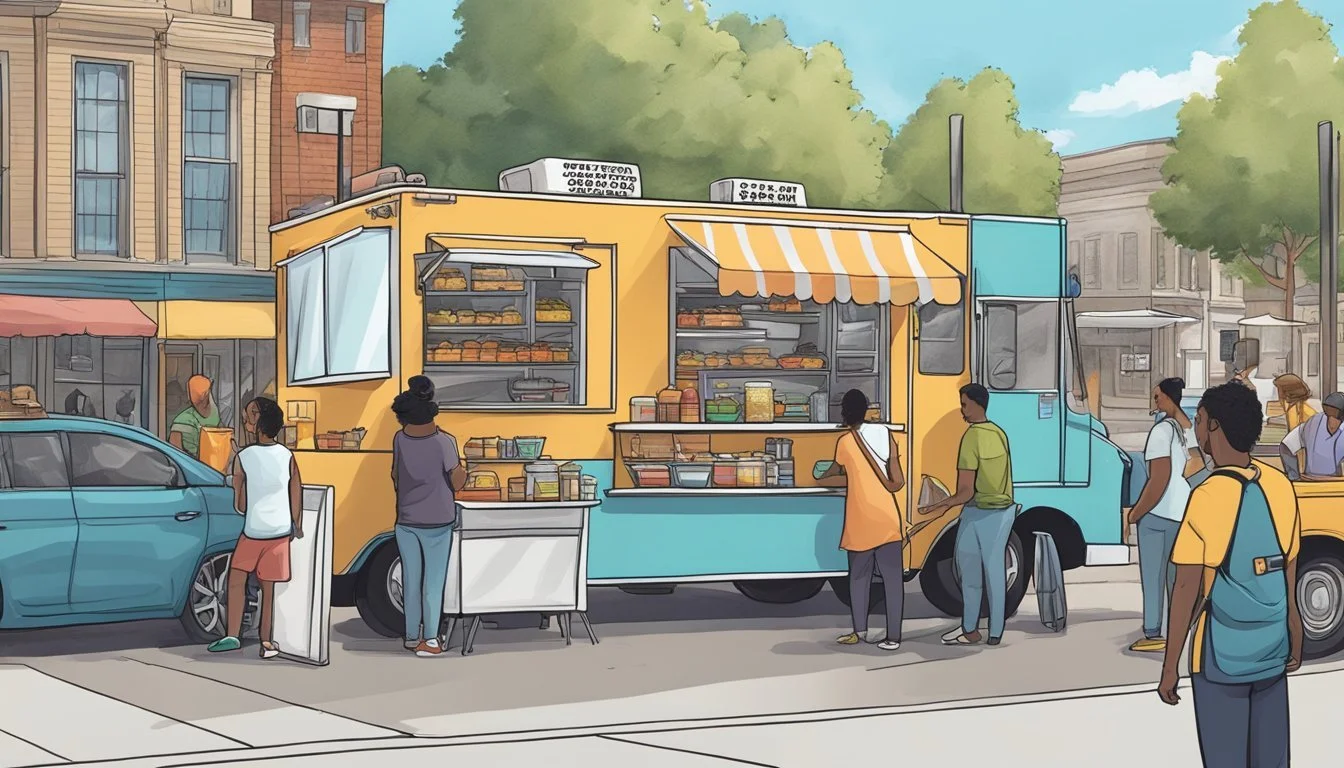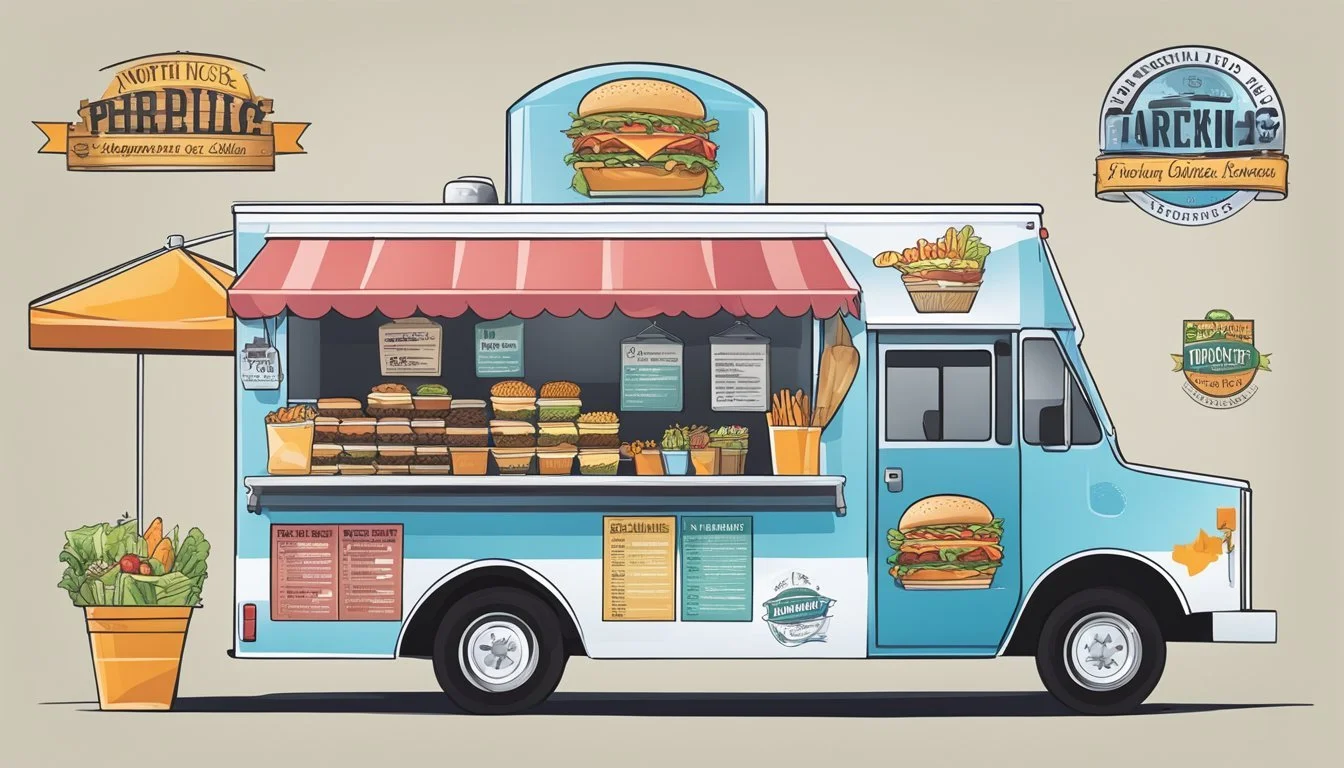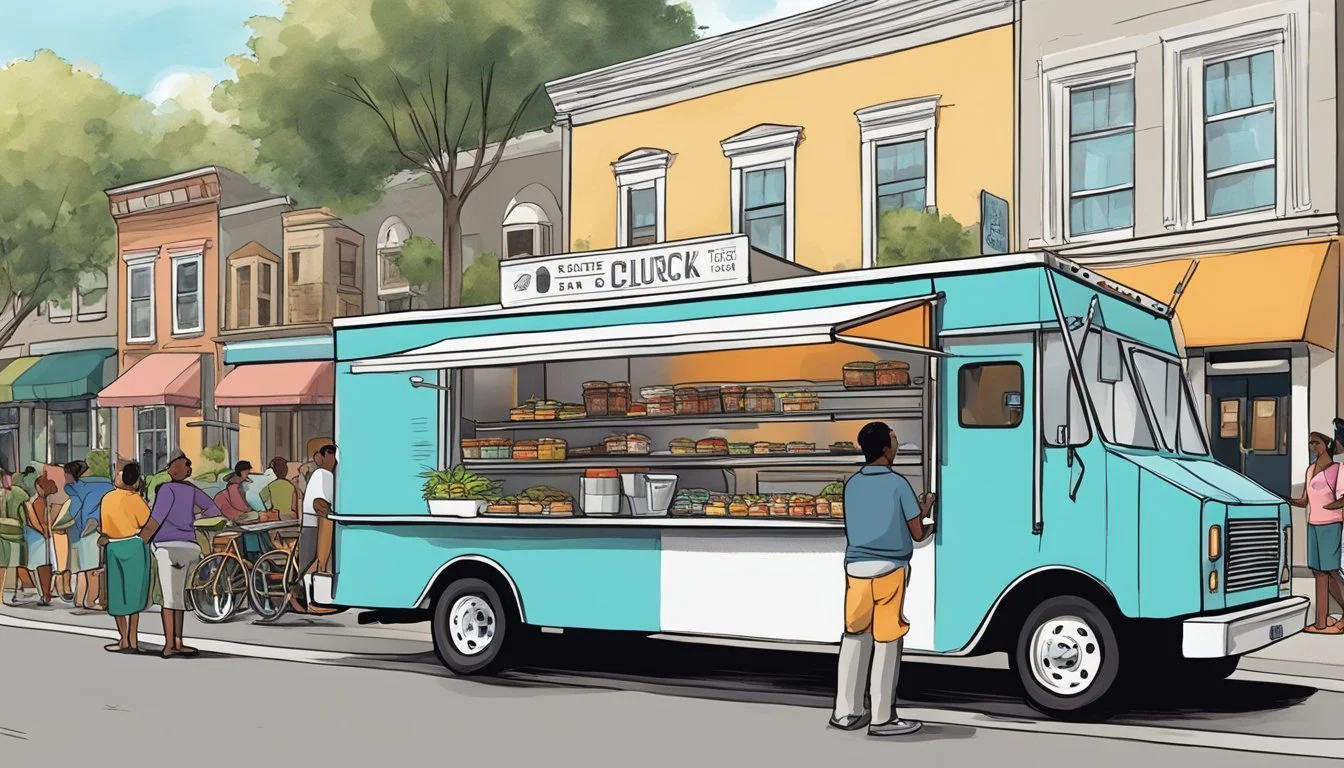Food Truck Laws in North Carolina
Understanding Regulations for Mobile Eateries
Operating a food truck in North Carolina involves navigating a series of regulations aimed at ensuring public safety and compliance with state laws. Potential owners must familiarize themselves with the specific licensing and permits required to operate their mobile food business legally. The initial step is acquiring a business license, which serves as official authorization to conduct business within the state.
Beyond the business license, food trucks need a series of health and safety permits, which are mandatory for food service providers. These permits include a Mobile Food Facility Permit and a Public Health Permit, both of which ensure that the food truck meets the Department of Health and Human Services' health standards. The presence of these permits assures customers that the food truck adheres to the stringent health codes in place.
Furthermore, food trucks in North Carolina must comply with laws that govern their mobility and operations. This includes securing a proper vehicle registration and ensuring that the food truck meets all Department of Motor Vehicles (DMV) safety regulations. Compliance with these regulations signifies a commitment to not only public health but also to road safety and operational integrity.
Food Truck Business Fundamentals
Embarking on a food truck venture in North Carolina requires a solid understanding of the essentials, including business structure, planning, and finances. Addressing these key elements lays the foundation for a successful operation.
Starting a Food Truck Business
The initial steps to starting a food truck business involve researching and understanding the specific food truck licenses and permits required in North Carolina. Selection of a catchy business name and the menu that will appeal to the target audience are crucial for branding and marketing the food truck.
Choosing a Business Entity
A prospective food truck owner must choose a business entity that best suits their operation. The choices typically include a sole proprietorship, partnership, or Limited Liability Company (LLC). An LLC is often preferred for its protection of personal assets and tax benefits.
Creating a Business Plan
Creation of a business plan is essential; it serves as a roadmap for the food truck’s operation, financial projections, marketing strategies, and team development. This document is instrumental when approaching potential investors or financial institutions for funding.
Securing Funding and Managing Finances
To secure funding, a food truck entrepreneur may explore options like small business loans, investors, or crowdfunding. Effective management of finances is vital for sustainability and growth, which involves budgeting, expense tracking, and ensuring the business’s cash flow remains healthy.
Regulations and Compliance
Navigating the intricate framework of North Carolina's food truck industry requires awareness of varied regulations and strict adherence to compliance measures. This ensures both the safety of consumers and the legitimacy of the business operation.
Understanding State and Local Regulations
In North Carolina, food trucks are governed by a mix of state statutes and local ordinances. Operators must be conversant with the regulations that affect their business, which may vary by location. Approval from the North Carolina Department of Health and Human Services is mandatory, as well as abiding by the specific local government requirements, which could include additional health and safety standards.
Obtaining Necessary Permits and Licenses
To legally operate a food truck, a series of permits and licenses are necessary. From acquiring a business license from the North Carolina Secretary of State to securing a Mobile Food Facility Permit and Public Health Permit, each step is critical. Certain areas may also require a Seller's Permit and, where applicable, a Liquor License and Employee Health Permit.
Parking and Zoning Restrictions
Food trucks face parking and zoning restrictions that dictate where they can operate. Securing zoning permits and understanding parking regulations are essential to avoid penalties. Local governments set these guidelines, which dictate the areas designated for food truck operations and the duration for which they can park in one spot.
Food Safety and Inspection Requirements
Maintaining high standards of food safety is paramount, overseen by the local health department. Regular inspections confirm compliance with sanitation and handling rules, intended to prevent foodborne illness. Additionally, compliance with ServSafe or equivalent programs ensures that operators are trained in food safety protocols. All vehicles must pass a health inspection at least once a year, focusing on areas such as food storage and preparation spaces.
Operators should stay current with these requirements, as adherence is strictly regulated and enforced.
Operational Essentials
In North Carolina, the success of a food truck business hinges on its compliance with specific operational requirements. These operational essentials ensure that food trucks are well-equipped, maintain high standards of hygiene and cleanliness, properly store and handle ingredients, and possess the necessary licenses and insurance coverage.
Equipping Your Food Truck
A food truck in North Carolina should be furnished with the necessary equipment to prepare and serve food safely and efficiently. This includes installing commercial-grade cooking appliances suitable for the truck's size and menu needs. Refrigeration units are imperative for keeping perishables at the correct temperatures, with specific areas dedicated to meats to prevent cross-contamination.
Handling and Storage of Ingredients
Safe handling and storage of food are vital to prevent spoilage and foodborne illnesses. Meats should be stored separately from other ingredients, and all items must be maintained at safe temperatures. Food trucks need to employ refrigeration units that are consistently monitored and periodically serviced to ensure they function properly.
Maintaining Hygiene and Cleanliness
Hygiene and cleanliness are non-negotiables in food truck operations. In North Carolina, food handlers are required to acquire a food handler's license, demonstrating their understanding of cleanliness standards. Trucks must be kept clean, with regular schedules for sanitizing surfaces and maintaining a clutter-free environment.
Ensuring Proper Licensing and Insurance
Running a legal food truck operation means securing the right permissions and licenses, and ensuring adequate insurance coverage. In addition to a general business license, food trucks need permits specific to mobile food facilities and may require additional local permissions. Vehicle inspection is mandatory, and insurance should be in place to protect the business against liability and other risks.
By adhering to these operational essentials, food trucks in North Carolina can provide safe, delicious food to their customers while navigating the legal requirements of the mobile food industry.
Health and Safety Measures
Health and safety measures in food trucks in North Carolina are of paramount importance. They require specific attention to food safety protocols, sanitation regulations, and temperature control measures to protect public health and comply with state laws.
Implementing Food Safety Protocols
Food trucks in North Carolina must have a certified Food Protection Manager on staff. This individual is responsible for implementing and overseeing a comprehensive food safety program that addresses all aspects of food handling, from receiving and storing ingredients to cooking and serving. They must ensure employees are trained in proper food safety practices like avoiding cross-contamination and following hand washing protocols.
Adhering to Sanitation Regulations
Sanitation is critical for preventing foodborne illnesses. Food trucks must maintain clean facilities and equipment, with regular sanitation inspections carried out by local health departments. They are required to have procedures in place for the safe disposal of waste and must use sanitizing solutions that meet the regulatory standards set by the North Carolina Department of Health and Human Services.
Ensuring Temperature Control and Refrigeration
Strict temperature control is mandatory to inhibit the growth of harmful bacteria in food products. Food trucks must have working refrigeration units to keep perishable items cold and must regularly monitor the temperature of these units. Hot foods should be kept at 135°F or above, while cold foods must be stored at 41°F or below to ensure safety.
Legal and Financial Considerations
Starting a food truck business in North Carolina requires careful attention to various legal and financial responsibilities. Compliance with the necessary requirements not only ensures legality but also prevents costly penalties that can arise from oversight.
Addressing Legal Requirements
To operate a food truck in North Carolina, businesses must acquire a series of permits and licenses. Key among these is the Business License, obtained from the North Carolina Secretary of State's office, which allows the legal operation of a food truck. Additionally, owners need a Mobile Food Facility Permit and a Public Health Permit. Evidence of adherence to health and safety codes comes under scrutiny, especially through periodic vehicle inspections. These inspections, mandatory at least once a year, are conducted by a licensed inspector and encompass crucial vehicle components like brakes, steering, and exhaust systems.
Important to note, employment laws require any food truck employing staff to obtain an Employer Identification Number (EIN), essential for tax purposes. Legal requirement fulfillment extends to the truck itself, which must be registered with the Department of Motor Vehicles (DMV). Keeping track of these requirements and maintaining up-to-date records can safeguard from unexpected legal challenges.
Handling Sales Tax and Financial Records
In the financial realm, managing sales tax is a pivotal aspect. Food trucks must collect sales tax on each sale, which is later remitted to the North Carolina Department of Revenue. Diligent record-keeping of these transactions is critical for both financial reporting and tax compliance. The state mandates the maintenance of accurate financial records, which serve as evidence of the business's revenue and tax liabilities.
Regarding expenses, understanding the fees associated with permits, licenses, and renewals is vital for budgeting and financial planning. Failure to comply with financial regulations can result in penalties, adding unnecessary costs to the business. It is imperative for food truck owners to monitor their money flow meticulously, ensuring that all financial responsibilities, from EIN filing to sales tax collection, are handled with precision and integrity.
Additional Considerations for Food Truck Owners
In addition to managing day-to-day operations, food truck owners in North Carolina should pay close attention to regulations around special events, refine their marketing strategies, and plan judiciously for business expansion.
Participating in Special Events
Food truck owners can explore opportunities at cultural festivals, local fairs, and other special events. They must usually obtain temporary permits and adhere to specific guidelines for each event. Obtaining event-specific permits may require submitting an application well in advance and adhering to different health department standards than regular operation.
Marketing and Customer Engagement
Creating a strong marketing plan is crucial for generating buzz and attracting customers. A well-maintained website and active social media presence allow food truck operators to showcase their menu and unique offerings. Regular posts and interaction with customers can foster a dedicated following, while strategic partnerships and local food apps expand their mobile operation's visibility.
Expansion and Growth Strategies
When considering expansion, food truck owners should evaluate their business models and market conditions. Adding new trucks or introducing stationary locations requires updated food truck business plans and potential changes to licenses and permits, which might include additional cooking equipment or alcohol sales, each involving specific regulations and potentially different sales tax considerations. Additionally, securing an Employer Identification Number (EIN) is important for hiring employees and for any future business growth that transcends sole proprietorship.
Appendix
In the realm of food truck operations within North Carolina, the Appendix serves as a critical resource compendium for operators seeking comprehensive guidance on licensure and compliance. This section concisely presents valuable contacts and resources.
Helpful Resources and Contacts
North Carolina Secretary of State
Operators may obtain the necessary business license for operating a food truck through contact with the North Carolina Secretary of State’s office. Essential details can be found below:
Address: NC Secretary of State, Business Registration Division, PO Box 29622, Raleigh, NC 27626-0622
Phone Number: (919) 814-5400
North Carolina Department of Health and Human Services
For health and sanitation permits, the North Carolina Department of Health and Human Services oversees food service establishment permits, ensuring all food trucks meet health code requirements.
Address: 2001 Mail Service Center, Raleigh, NC 27699-2000
Phone Numbers:
General: (919) 855-4800
Food Protection Services: (919) 707-5854
Local Government Resources
Local government entities provide region-specific guidance and regulatory information. Food truck operators should establish connections with:
Local City Hall: To comprehend municipal regulations applicable to the area of operation.
County Health Department: For inspections and county-level health-related permits.
For effective navigation through the Food Truck Laws and obtaining necessary permits within North Carolina, leveraging these resources is instrumental. They serve as a foundation for maintaining compliance and achieving successful food truck entrepreneurship.
Conclusion
North Carolina has a vibrant food truck culture, helped in no small part by the state's regulatory environment. Individuals looking to start a food truck in the state should ensure they have the proper insurance coverage, tailored to their specific business and location requirements. Insurance types that are often necessary include general liability, vehicle insurance, and workers' compensation.
The state's legislators have worked to reduce burdensome regulations, as seen in the relaxation of the commissary rule. This change has allowed food truck operators greater flexibility in how they establish and operate their mobile businesses. For continued compliance, food truck operators must also remain current with necessary licenses and permits, including but not limited to the Business License, Mobile Food Facility Permit, and Public Health Permit.
Operators must also regard the vehicle inspections that are mandated at least annually. These ensure the ongoing safety and compliance of the food trucks with respect to various mechanical and operational standards.
In light of these developments, those interested in joining the food truck industry in North Carolina can find a supportive atmosphere for starting and growing their ventures. However, they must prioritize adherence to the legal requirements to ensure their business operations are uninterrupted and maintain a good standing within their communities.







